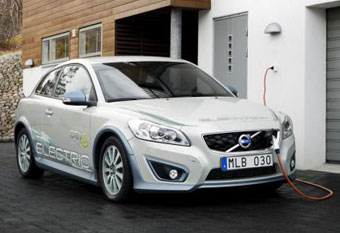
Sweden’s Volvo Car Corp. says it is taking another step towards next-generation electric-vehicle technology in developing a fuel cell that can extend an EV’s operating range without producing any carbon-dioxide emissions.
Backed by research support from the Swedish Energy Agency, the auto maker aims to have two prototype chassis based on the Volvo C30 DRIVe EV ready for testing in everyday traffic beginning in 2012.
Volvo Cars President and CEO Stefan Jacoby calls it an exciting expansion of the company’s focus on electrification.
“Battery cost and size means that all-electric cars still have a relatively limited operating range,” Jacoby says in a statement.
“Fuel cells may be one way of extending the distance these cars can cover before they need to be recharged. What is more, the project gives us increased knowledge about fuel cells and hydrogen gas."
Volvo Cars is working with Powercell Sweden AB on the project.
In the first phase, a preliminary study is being conducted into what is known as a range extender, which consists of a fuel cell coupled with a reformer. The task of the reformer is to break down a liquid fuel, in this case gasoline, to create hydrogen gas.
In the fuel cell, this hydrogen gas is converted into electrical energy, which is used to power the car's electric motor.

The technology generates electricity completely without any CO2 emissions, nitrogen oxides, sulfur oxides or particles. Volvo says the method also can be adapted for renewable fuels.
Volvo expects operating range to be increased by up to 156 miles (250 km). This is in addition to the range provided by the EV's battery pack.
The fuel-cell industry expects cost efficiency will improve continuously through refined technology and large-scale production.
In the next phase, Volvo Cars and Powercell plan to produce the two test cars based on the C30 DRIVe.
“We have just taken the first steps and it is too early to talk about market introduction of electric cars with range extenders,” Jacoby says. “The industrial decision will come after we have learned more about fuel cells and the opportunities they offer.”




